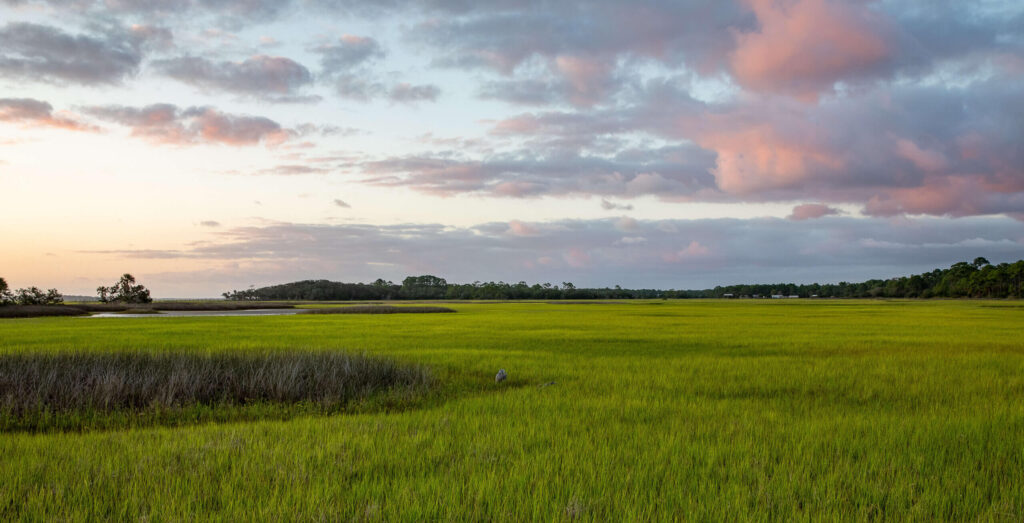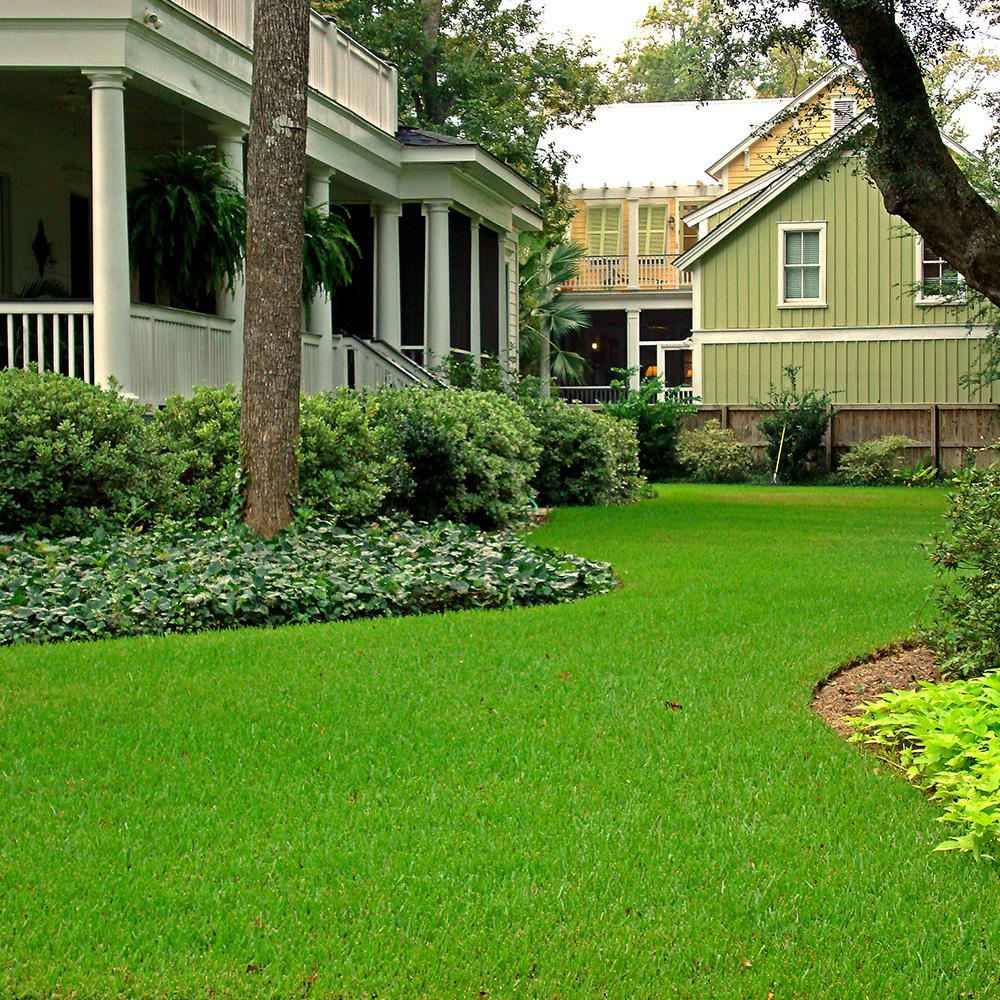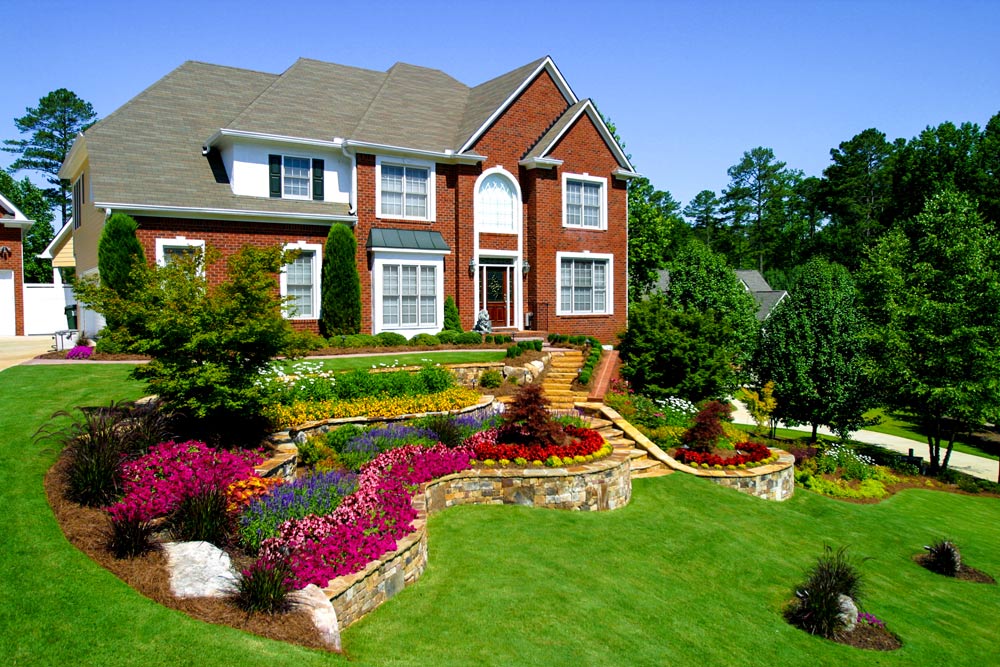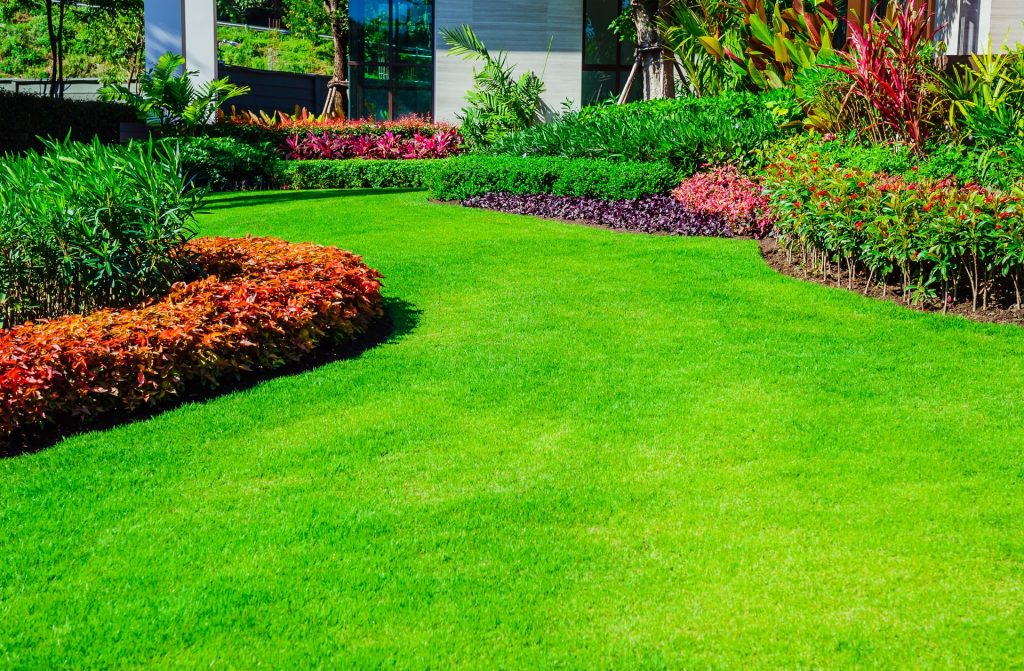
Table of Contents
Which Grass Is Best For Florida?
Everyone loves to have a fresh, well-maintained, and lush green lawn in front of their eyes, it creates a scene of tranquility and natural beauty, offering a refreshing oasis in our everyday surroundings. Maintaining a lush green and fresh lawn in Florida is demanding just because of Florida’s warm and humid weather.
To have a well-maintained and lush green lawn, you must choose the grass appropriate for Florida’s soil texture and weather conditions. While selecting the grass you should be careful, one mistake can ruin everything. The weather in Florida is mild with dry winters and hot summers, so it would be best to choose warm-season grass.
Best Grasses For Florida:
The best options are St. Augustine grass, Bermuda grass, Zoysia grass, and Centipede grass, these are the grasses that you can consider for weather conditions and soil in Florida. These grass varieties perfectly adapt to Florida’s soil types, weather conditions, and overall environment. Each type offers unique benefits, from St. Augustine’s lush growth and salt tolerance to Bermuda’s durability in sunny areas.
While Zoysia and Centipede grasses provide good coverage and low maintenance options across various conditions, choosing one of these grass types provides a well-maintained, beautiful, lush green lawn in Florida.
1. St. Augustine grass:

St. Augustine grass is a superb choice for Florida, commonly known as Buffalo grass. It is a warm-season grass well-adopted for Florida’s warm and humid weather, this grass is cultivated as a lawn in tropical and subtropical regions like Florida. St. Augustine grass is dark green with flat blades.
| Pros | Cons |
|---|---|
| 1. Heat Tolerance: St. Augustine grass thrives in warm climates and is well-suited to high temperatures. | 1. Moderate to High Water Requirements: St. Augustine grass demands regular and sometimes higher amounts of water. |
| 2. Dense Growth: It forms a thick turf, reducing weed growth and creating an aesthetically pleasing lawn. | 2. Cold Sensitivity: It is sensitive to cold temperatures, leading to browning in cooler climates. |
| 3. Adaptability: This grass can adapt to various soil types, including sandy and clayey soils. | 3. Susceptibility to Diseases: – Large Patch (Rhizoctonia solani) – Gray Leaf Spot (Pyricularia grisea) – Take-All Root Rot (Gaeumannomyces graminis var. graminis) |
| 6. Resistant to Wear: It can withstand moderate foot traffic but it has the ability to recover well from minor damage very quickly. | 4. Maintenance Needs: Requires consistent maintenance practices, including mowing, fertilization, and pest control. |
| 5. Shade Tolerance: While it prefers full sun, it exhibits some ability to tolerate partial shade. | 5. Thatch Buildup: Can develop a thatch layer, requiring periodic dethatching to maintain a healthy lawn. |
| 6. Resistant to Wear: It can withstand moderate foot traffic but it has ability to recover well from minor damage very quickly. | 6. Slow Growth in Cooler Seasons: Exhibits slower growth during cooler weather, affecting its overall appearance. |
| 7. Green Color: St. Augustine grass typically maintains a lush, green color, contributing to an attractive lawn appearance. | 7. Invasive Growth: The aggressive spreading can lead to encroachment on neighboring areas, requiring management. |
| 8. Rapid Spread through Stolons: The use of stolons enables fast horizontal growth and efficient ground coverage. | 8. Sensitive to walking: Because the roots of St. Augustine grass are not too deep into the ground, this makes the root gets damaged easily by walking over it again and again. |
| 9. Efficient Area Coverage: Its aggressive spreading habit helps cover bare areas quickly, ensuring a uniform lawn. |
What Makes St. Augustine Grass The Best Choice For Florida?
The following factors make St. Augustine grass the best choice for Florida:
Adaptability To Soil:
St. Augustine grass is one of the best choices for Florida because it is well adapted to Florida’s soil texture.
Weather Conditions:
The growth of grass depends on the weather conditions of any place, St. Augustine grass is best for Florida because it is a warm-season grass and grows best in warm and humid areas like Florida.
Conclusion:
In conclusion, St. Augustine grass is a superb choice for your Florida lawn because it adapts well to Florida’s weather conditions, soil texture, and environment. It offers a rich green look, shade tolerance, and tolerance to heat and salt. Just remember that it needs a proper amount of water to flourish, especially during dry periods. With proper care, you can get a lush green, fresh, and beautiful St. Augustine lawn.
2. Bermuda Grass:

Cynodon dactylon commonly known as Bermuda grass, is also called couch grass in Australia. This grass is famous all over the US and is used as a lawn, pasture grass, and for golf greens. Bermuda is one of the best grass for Florida because it is a warm-season grass for warm areas such as Florida.
| Pros | Cons |
|---|---|
| 1. Heat Tolerance: Bermuda is a warm season grass and has high heat tolerance. | 1. Moderate to High Water Requirements: Bermuda grass requires proper amounts of water. |
| 2. Dense Growth: It forms a thick turf, reducing weed growth and creating an aesthetically pleasing lawn. | 2. Cold Sensitivity: It is sensitive to cold temperatures, in winters it is dormant and brown |
| 3. Adaptability: This grass grows best in clay soil, and can also survive best in sandy soil but not acidic and alkaline. | 3. Susceptibility to Diseases: – rust, leaf spot and parasites. |
| 6. Resistant to Wear: This grass has a self repairing ability that’s why it is mostly used for golf and althetic fields. | 4. Maintenance Needs: Requires consistent maintenance practices, including mowing, fertilization, and pest control. |
| 5. Drought Tolerance: It has high drought tolerant but it may becomes brown during extended period of drought. | 5. Slow Growth in Cooler Seasons: Exhibits slower growth during cooler weather, affecting its overall appearance. |
| 7. Dark Green Color: Bermuda grass typically maintains a lush, dark green color, contributing to an attractive lawn appearance. | 6. Invasive Growth: It grows rapidly which can be challenging. |
| 8. Spreading: It spreads through both stolons and rhizomes. | 7. Shade Tolernace: Bermuda grass is poor shade tolerant it may die because of shade. |
| 9. Efficient Area Coverage: Its aggressive spreading habit helps cover bare areas quickly, ensuring a uniform lawn. |
Why is Bermuda Grass the Best Choice for Florida?
Some factors make Bermuda grass the best choice for Florida, these factors are mentioned below:
1. Warm Season Grass:
Florida is the hottest state in the US, with warm and humid summers and mild winters. So warm-season grasses like Bermuda are best for Florida. Bermuda grass is heat and drought-tolerant, which makes it more suitable for warm places such as Florida.
2. Soil texture:
Florida’s soil texture includes mostly sandy soil, clay, and sandy clay. Bermuda grass is best for Florida’s soil texture because Bermuda grass grows best in clay and sandy soil.
3. Green In Winters:
Florida gets frost very rarely, Bermuda grass is best for Florida because it stays green throughout the winters in a frost-free climate.
Conclusion:
Bermuda grass is the best choice for Florida because it adapts well to Florida’s weather conditions and soil texture. This grass is tolerant to heat and drought but is poor tolerant to shade. Bermuda grass has a dark green color and self-repairing ability. It requires high maintenance and a proper amount of water for growth.
3. Zoysia grass:

Zoysia grass is a warm-season grass, also known as Korean or Japanese grass. It is well known for its heat and drought tolerance, it can withstand heavy foot traffic. Zoysia grass is light to medium green but may turn brown in winter dormancy.
| Pros | Cons |
|---|---|
| 1. Heat Tolerance: Zoysia grass survives in warm climates and is well-suited to high temperatures. | 1. Slow Growth: Zoysia grass grows slowly, it takes almost two years . |
| 2. Low Water requirement : It does not requies higher amount of water | 2. Cold Sensitivity: It turns brown in winter dormancy. |
| 3. Soil Adaptability: Zoysia grass can adapt to various soil type but it grows well in loamy soil, sandy soil and clay. | 3. Susceptibility to Diseases: – Brown Patch -Dollar Spot – Rust Fusarium blight |
| 4. Resistant to Wear: It can withstand heavy foot traffic | 4. Maintenance Needs: It requires low maintenance |
| 5. Shade Tolerance: It prefers full sun but it is tolerant to light shade. | 5. heavy traffic in dormant periods : It is not tolerant to heavy traffic in its dormant periods. |
| 6.light to medium Green Color: Zoysia maintains a lush, light to medium green color, presenting an attractive lawn. | 6. heavy shade: Zoysia grass is poor tolerant to heavy shade |
| 7. Spreading : It spreads through stolons and rhizomes | 7. Invasive: Zoysia grass can be very invasive once it is grown then it can harm other plants in your lawn |
| 8. Dense carpet: It grows and forms a dense carpet |
Why Zoysia Grass Is A Good Choice For Florida?
Zoysia grass is a good choice for Florida because:
Adapts The Weather Conditions:
The growth of grass depends on the weather conditions of a place, you must choose a grass which adapts to the weather conditions of your place. Florida’s weather is warm and humid, Zoysia grass is a good choice for Florida because it grows best in warm weather.
Soil Texture:
Florida soil texture is mostly sandy, loamy soil, and clay. Zoysia grass is best for Florida because it grows best in loamy soil, sandy soil, and clay.
Southern Region:
Florida is a southern state of the US, so Zoysia grass is best for Florida because it grows best in the Southern and Transition regions.
Conclusion:
In conclusion, Zoysia grass is a good choice for Florida because it grows best in Florida’s weather conditions, soil texture, and location. This grass can withstand heavy foot traffic and is heat and drought-tolerant. It does not require high maintenance and regular water. It grows slowly and becomes brown in winter dormancy.
Centipede grass:
Centipede grass is native to China and Southeast Asia, it’s been in the US. It is a warm-season grass, also known as Eremochloa ophiuroides and lazy man’s grass. It is well-known for heat tolerance, moderate shade tolerance, and meager maintenance requirements.
| Pros | Cons |
|---|---|
| 1. Heat Tolerance: Centipede grass is warm season grass and has high heat tolerance | 1.Cold sensitivity: Centipede grass is very sensitive to cold weather. |
| 2. Dense Growth: It forms a thick turf, reducing weed growth and creating an aesthetically pleasing lawn. | 2. Slow growth: Centipede grass grows more slowly than all othe warm-season grasses. |
| 3. Adaptability: This grass can adapt to slightly acidic and sandy soils. | 3. Susceptibility to Diseases: – Large Patch (Rhizoctonia solani) – Ground pearl – HELMINTHOSPORIUM – Spring Die- Back |
| 6. Maintenance Needs: It doesn’t require regular and high maintenance. | 4. Salt Tolerance: It is less tolerant of salt |
| 5. Shade Tolerance: Centipede grass is more tolerant to shade than any other warm-season grass. | 5. Recovery From The Damage: It recovers slowly from the damage |
| 6. Apple Green Color: Centipede grass typically maintains a lush, apply green color, contributing to an attractive lawn appearance. | 6. Drought tolerance: This grass is not very tolerant to drought |
| 7. Spreaading: It speards through stolons | 7. Sensitive to walking: Centipede grass root system is relativily shallow so it can’t bear heavy foot traffic |
| 8. Efficient Area Coverage: Its aggressive spreading habit helps cover bare areas quickly, ensuring a uniform lawn. |
Why Centipede Is A Good Choice For Florida:
The following reasons make Centipede grass a good choice for Florida:
Warm And Humid Weather:
Florida has warm and humid summers and mild winters. Centipede is a warm-season grass, it is a good choice for Florida because it grows well in places with warm and humid summers and mild winters.
Soil Texture:
Centipede grows well in Sandy and slightly acidic soil. Florida soil texture includes slightly acidic sandy, loamy soil, and clay, so Centipede grass is a good choice for Florida.
Heat Tolerant:
Centipede is the best choice for Florida because it can tolerate Florida’s warm weather very well.
Conclusion:
In conclusion, Centipede is a good choice for Florida because it is well adapted to Florida’s weather conditions and soil texture. Centipede grass is tolerant to heat and moderate shade, but not tolerant to salt. It doesn’t need high maintenance and nutrient requirements.
Also Read: Best Grass Seeds For Full Sun (Recommended)
